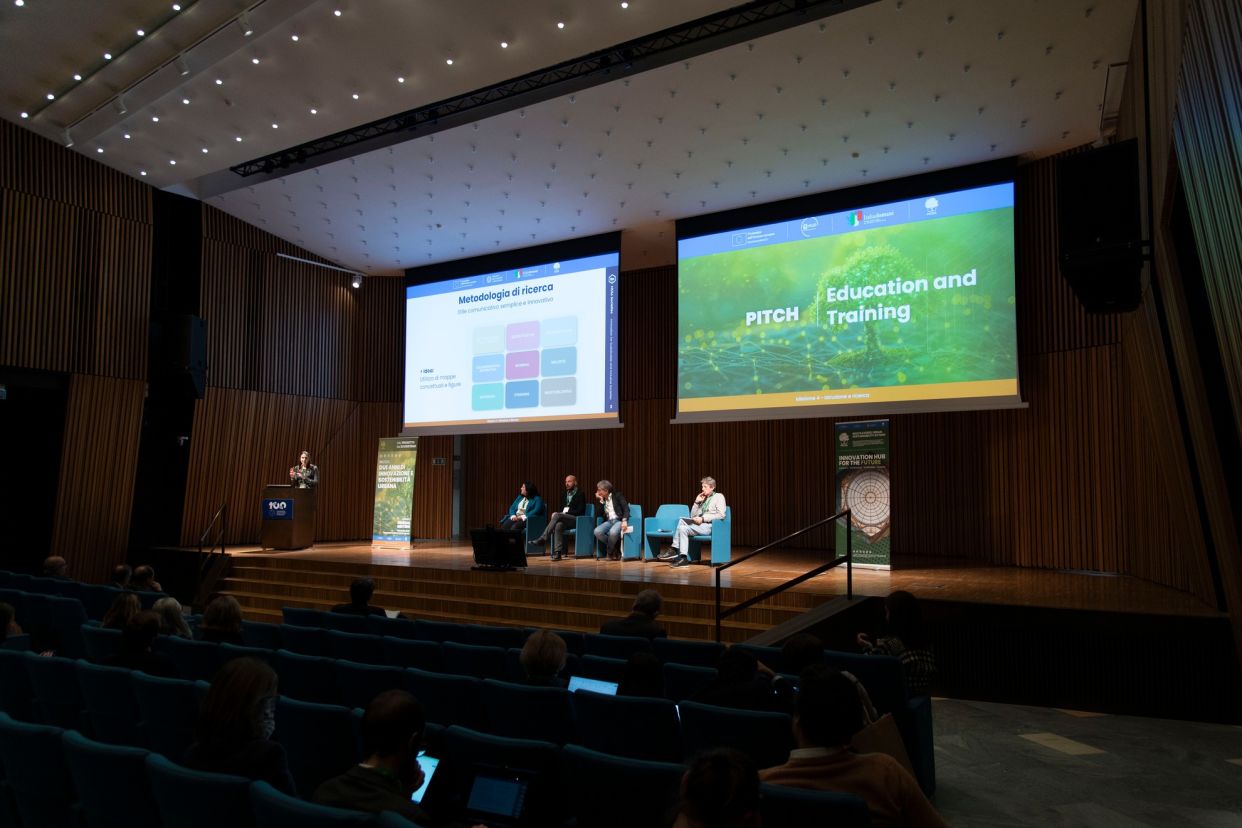Vittorio Biondi, General Director of MUSA, Reflects on the Milestones Achieved at the Fourth General Meeting
The Fourth General Meeting of MUSA, held at the University of Milan on December 9, marked a pivotal moment for the evolution of the Ecosystem, signifying the beginning of a decisive phase in the Project. Vittorio Biondi, General Director and Programme Manager of MUSA, shared the key achievements and future prospects of this ambitious project, which aims to generate tangible impacts on the economy, society, and the territory.
The recent Meeting was a significant step in the development of the MUSA Ecosystem.
Indeed, this Meeting marks the beginning of the third year of the project, following an extension granted by the Ministry of Universities and Research, allowing us to continue activities through the end of 2025. The event concluded a cycle that began in March 2023 at Bicocca, continued at the Polytechnic and Bocconi, and celebrated some key milestones.
First and foremost, it provided an opportunity to take stock of the progress of activities, thanks to 18 young researchers who presented their projects addressing the main areas of interest in the Project: energy transition, sustainable mobility, urban regeneration, circular economy, digitalization, and welfare. Another noteworthy aspect was the participation of six representatives from the Third Sector, acting as discussants. These individuals, external to MUSA but highly competent in their respective fields, represent the fourth fundamental pillar of the Ecosystem alongside universities, institutions, and businesses. Their contributions enabled us to gather new insights, which were generally very positive, and identify additional partners with whom we aim to collaborate further, as their input is essential to our journey.
The Meeting was also an opportunity to begin contemplating the future of MUSA.
In line with what all implementing entities of PNRR-funded projects are doing, we have initiated discussions about the future prospects of MUSA, involving current partners and those who have shown interest in our activities. While this is not a new topic, the Fourth Meeting officially launched a more structured phase of reflection. After the extraordinary funding ends, the Ecosystem will need to operate independently, capitalizing on what has been built during the initial years.
The Fourth General Meeting also allowed for an assessment of the Ecosystem’s progress. Can we be satisfied?
I believe we can be genuinely satisfied with what we have achieved so far and look toward the future of our Ecosystem with confidence. The progress of activities has been positive, both in terms of resource utilization and scientific results, as confirmed by the intervention of Prof. Gabriele Lobaccaro, one of the three scientific reviewers of the Project. Let us not forget that we are not funding basic research programs but applied research programs and experimental activities, aiming to generate concrete impacts on the economy, society, and territory in relatively short timeframes. The data and feedback we have collected so far are encouraging, and the responses from external partners—including local institutions and businesses, as well as international stakeholders—confirm the robustness of the Project and the quality of the work carried out to date.





